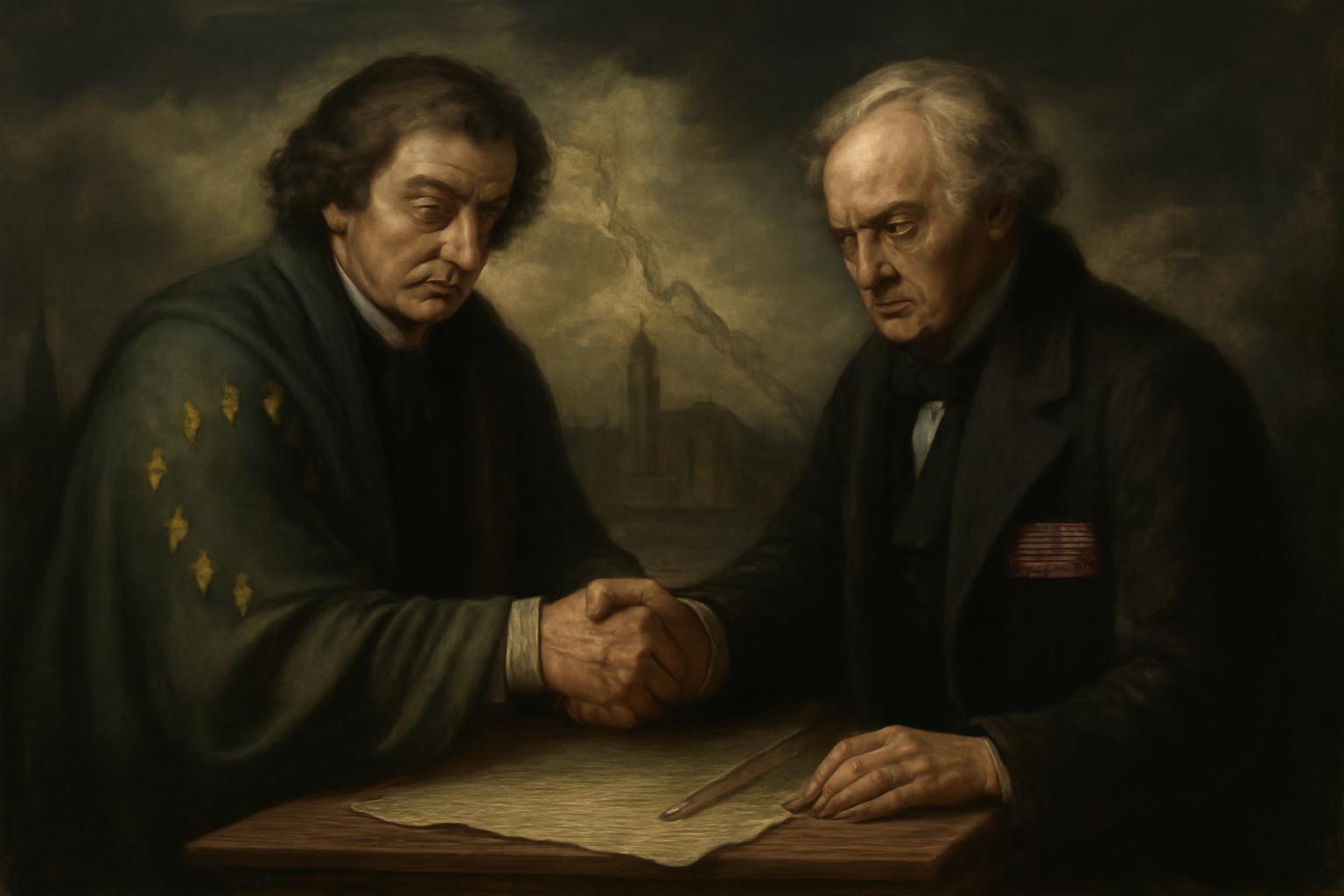Once again, the grand stage of history unfolds as farce: two imperious actors, Ursula von der Leyen and Donald Trump, exchanging uneasy courtesies while the Furies prowl unseen. The ink is scarcely dry on a customs treaty which, in the stately marble halls of Brussels, is whispered about with a mixture of dread and resignation. A woeful symmetry emerges—tariffs weighted against the European continent like the stones of Sisyphus, its industries condemned to labor beneath the American sun, while across the Atlantic, the market’s cold logic celebrates stability amidst capitulation.
That word—“predictability”—echoes with a peculiarly modern desolation. It is no longer the tragic awareness of one’s fate but the obsequious acceptance of lesser evils, as if compromise were virtue, and surrender wisdom. The tragic chorus of critics—drawn from all political shades—lament the upward spiral of tariffs, the forced embrace of American liquefied natural gas, and the deepening shackles of technological dependence. There is a scent of Thanatos here, a drifting away from European autonomy, masked by transactions and the jargon of the market.
How far have we fallen from the spirited struggles of Athens or the tumult of Nietzsche’s “free spirits”? Where is the Dionysian uproar, the noble striving for self-overcoming? Instead, we see strategic interests traded not for glory or greatness but for momentary peace, brokered by technocrats who smile as though their own defeat were an accomplishment. “We have avoided a trade war,” they say—yet, as Nietzsche wrote, “Man does not strive for happiness; only the Englishman does that.” They mistake the hollow quiet for victory, while the culture wanes into the twilight.
In every gesture, I see the ghost of Cassandra, warning of decline that comes not with thunder but with the slow, suffocating embrace of commerce above culture. Europe, cradle of tragedy, now drifts as Hamlet adrift—heavy with inaction, haunted by past greatness, and consoled by empty assurances that things could always be worse. One thinks, in the end, of the chorus in Sophocles—torn between hope and horror, watching Western civilization trade its birthright for an unsteady truce, as the shadows lengthen on the stage.
